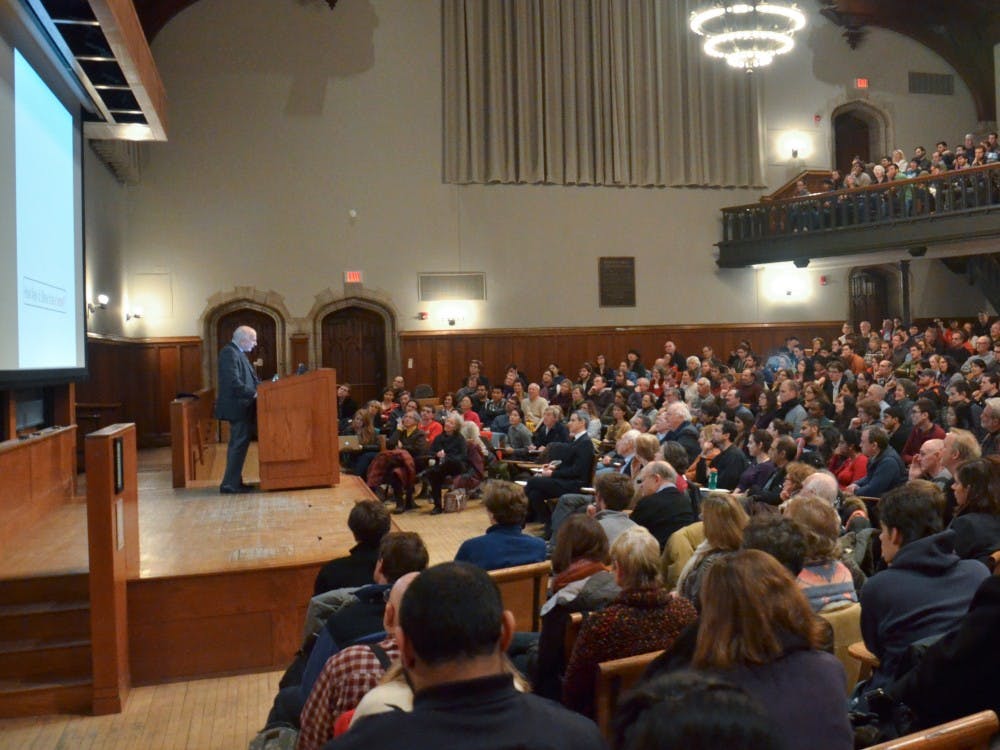Daniel Kahneman gave a lecture on Monday in which he summarized his research on human judgment and decision-making, and he emphasized the ways in which human intuitions depart from logical coherence.
Kahneman won the Nobel Prize in 2002 for economics and is a professor emeritus of psychology and public affairs in theWilson School.
During his lecture, he explained that he became interested in the limitations of human intuition by noticing how his intuitions about statistical sample size in his own researchwere often incorrect. He added that, after conducting a survey of statisticians, he had found that “even professional statisticians were not good 'intuitists.' ” By asking single questions in order to obtain important information, Kahneman and mathematical psychologist Amos Tversky were able to further study cases in which human intuitions and logic were divergent.
Kahneman then presented the audience with an example of the types of questions he would ask as part of the study, explaining that “some people were asked, ‘How many murders occur in Michigan?’ and others were asked, ‘How many murders occur in Detroit?’ ”
Kahneman found that if these questions were asked next to each other, participants presented logically consistent answers. However, participants did not give logically consistent answers when they were asked about Michigan separately.
“The issue is what comes to people’s minds,” Kahneman said. “Do they think of Detroit when they think of Michigan? Well, most of them don’t.”
Kahneman explained how he developed the idea of a duality of thinking in multiple systems in order to explain the effects he saw in the research he had done with Tversky. While “System One” is automatic, fast and effortless, “System Two” is slow, controlled and follows logical rules. Kahneman likened “System Two” to an editor that is “responsible for everything that is published,” as it can reject or revise the instincts of “System One,” but added that “much of the content comes from ‘System One.’ ”

“If we want to understand why people believe in things, why they think that certain things are true, it is important to know what ‘System One’ thinks about it,” Kahneman said. “ ‘System Two’ is less important than our experience tells us it is.”
Kahneman noted that his 1979 paper with Tversky had been very successful, explaining that the format of the paper — single questions embedded in the text — allowed for the positive reception of the paper in fields such as economics, philosophy, law and medical decision-making.
“We had all the questions embedded in the text. The readers would read, and they would have the same experience you had,” he said, addressing the audience. “And they say, as I suppose you have, that it worked on them.”
Kahneman published his description of the duality of the two systems in his New York Times bestselling book “Thinking, Fast and Slow,” which came out in 2011. Speaking of the success of his book, Kahneman said, “It’s really a mystery to me, I didn’t expect that.”

“What seems to resonate is this idea of two systems. And the automatic one is most important,” Kahneman said.
Kahneman spoke on Monday at 6 p.m. in McCosh 50 as part of the Stafford Little Lecture Series.








